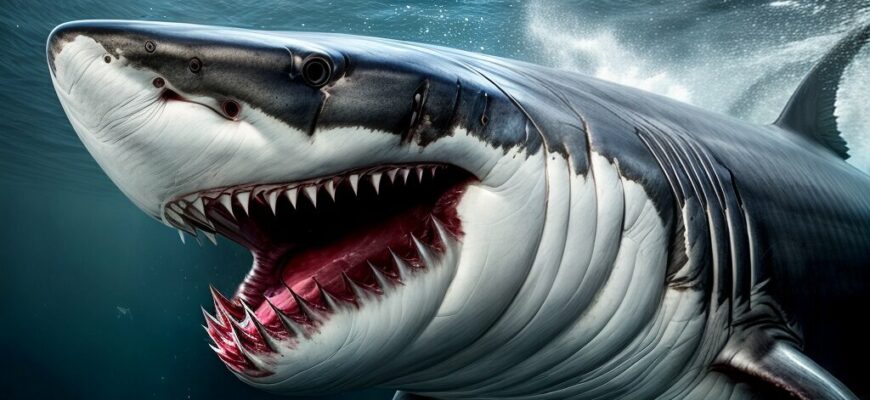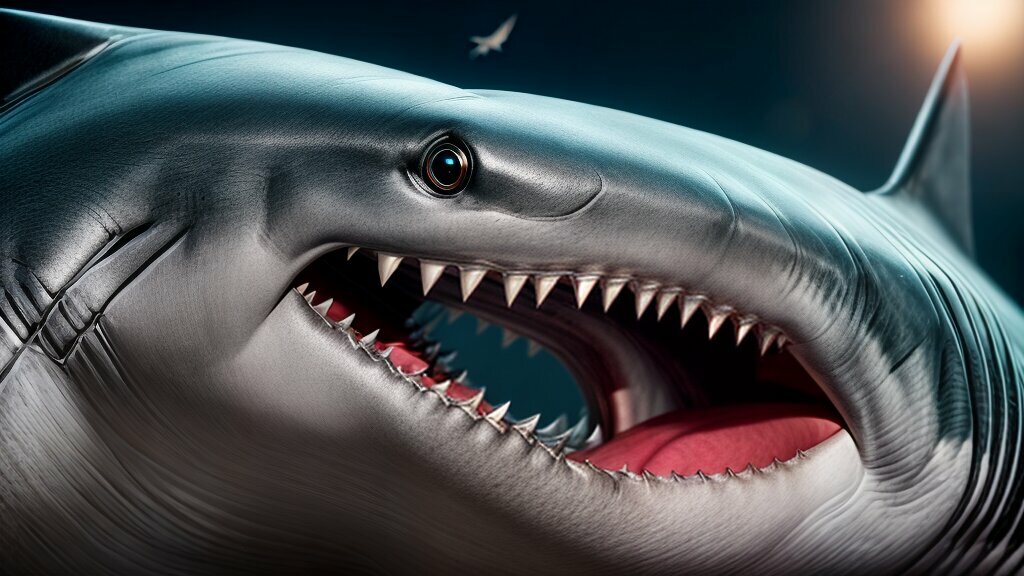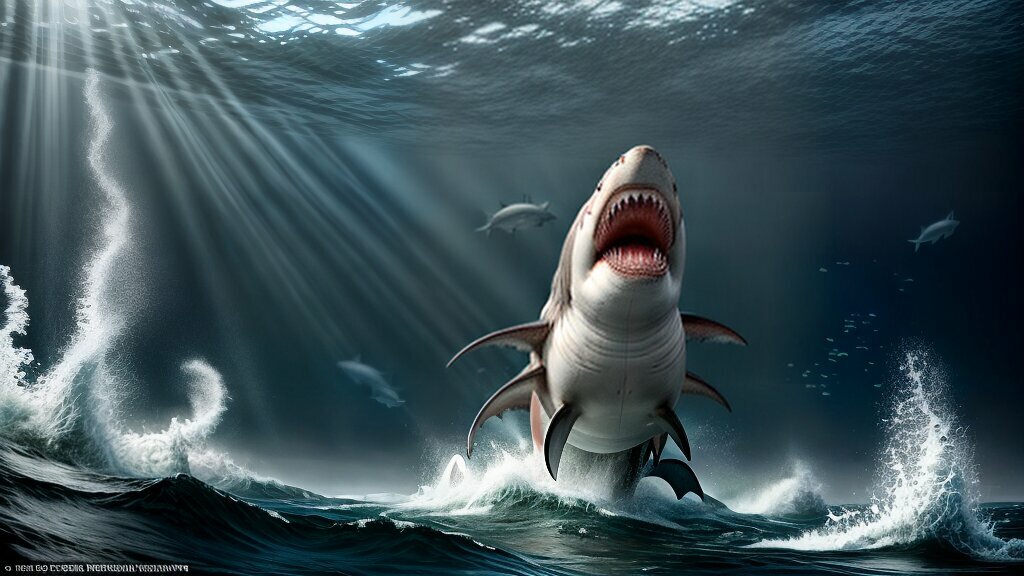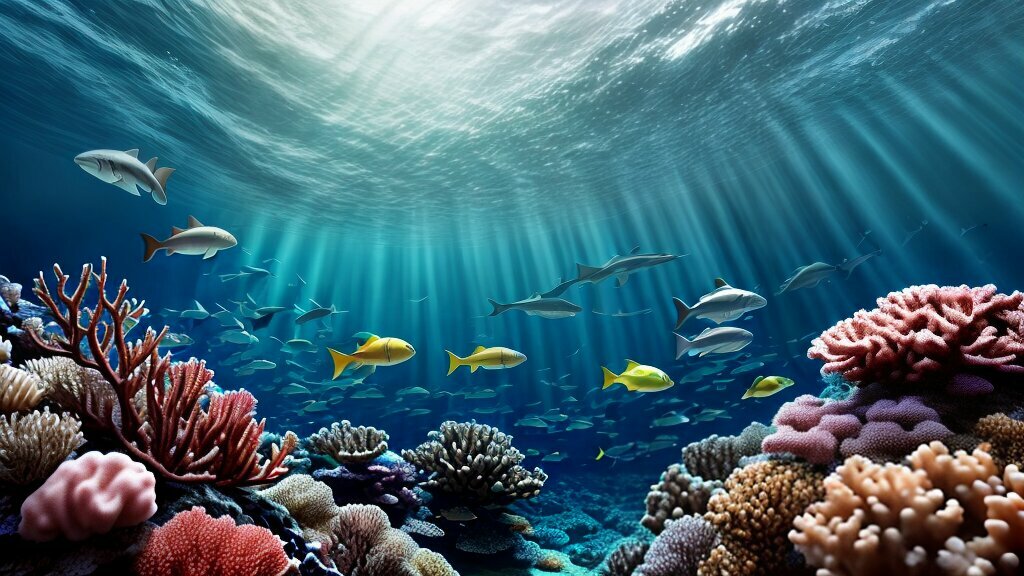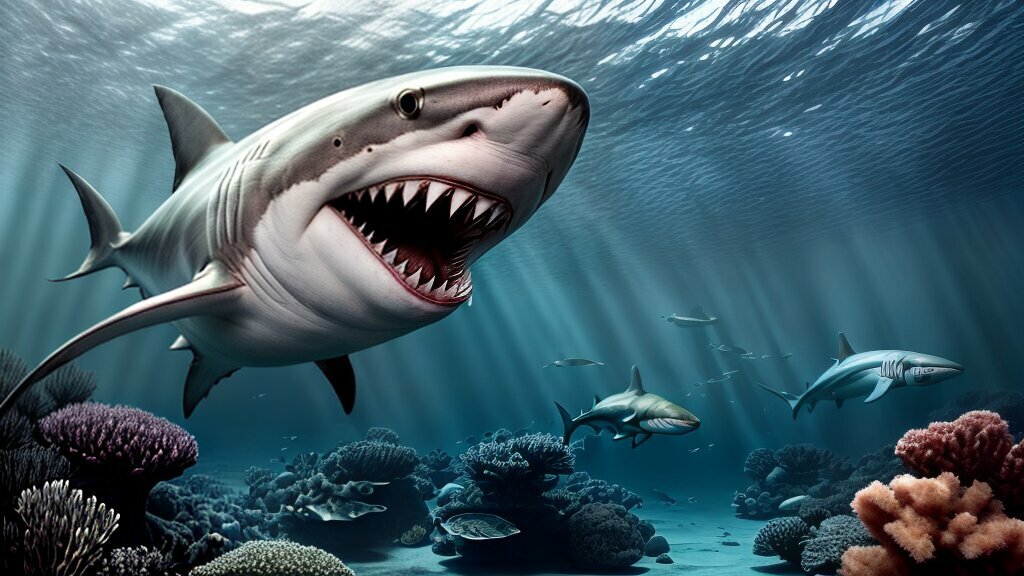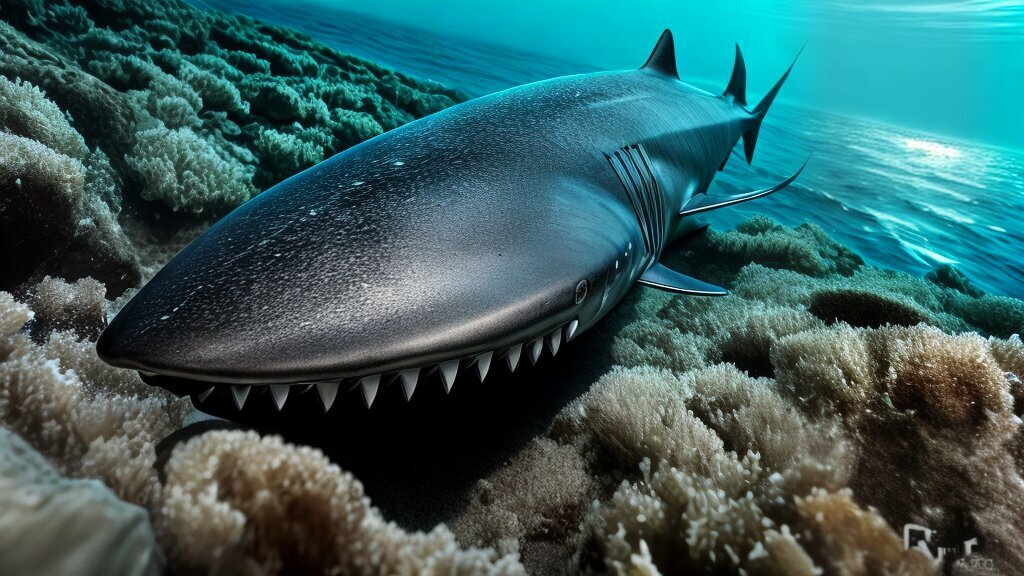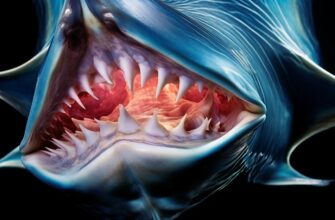Sharks are often portrayed as ruthless predators with an insatiable appetite for flesh. But do they eat bones? This is a question that has puzzled many. In this article, we are going to explore the intriguing world of sharks’ diets and uncover the truth behind the bone consumption habits of these fascinating creatures.
Sharks are known to be top predators in the marine ecosystem with a diverse diet. They feed on a range of marine organisms, including fish, squid, crustaceans, and even other sharks. Sharks have rows of sharp, serrated teeth that are designed to grasp and tear apart their prey. These teeth are constantly replaced throughout their lifetime, ensuring that they are always sharp and efficient.
But the question remains, do sharks consume bones as well? Let’s dive deeper into the world of shark feeding habits and find out.
- Key Takeaways:
- Understanding Shark Feeding Habits
- Types of Shark Feeding Behavior
- Demystifying Shark Digestion
- The Science Behind Shark Bone Consumption
- Conclusion
- Shark Prey Preferences
- Do Sharks Consume Skeletal Remains?
- The Truth About Sharks and Bones
- Conclusion
- FAQ
- Q: Do sharks eat bones?
- Q: How do sharks feed?
- Q: Can sharks digest bones?
- Q: What do sharks typically eat?
- Q: Do sharks consume skeletal remains?
- Q: So, do sharks eat bones?
Key Takeaways:
- Sharks are top predators in the marine ecosystem with a diverse diet.
- Sharks have specialized teeth that are designed to grasp and tear apart their prey.
- The question of whether sharks consume bones remains unanswered.
Understanding Shark Feeding Habits
Sharks have a reputation as some of the ocean’s most fearsome predators, with their sharp teeth and powerful jaws allowing them to capture and consume prey with ease. However, not all sharks feed the same way, and their feeding adaptations can differ depending on their size, habitat, and prey preferences.
One of the most fascinating aspects of shark feeding habits is their teeth. Unlike humans, sharks have multiple rows of teeth that are continually replaced throughout their lives. These teeth are highly specialized and vary in shape and size depending on the shark’s diet. For example, a shark that primarily feeds on fish may have narrow, pointed teeth for grasping and holding onto prey, while a shark that preys on larger mammals may have broader, serrated teeth for cutting through flesh and bone.
Another interesting adaptation that sharks possess is their ability to sense prey through various means, including sight, smell, and electromagnetism. Some species, such as the hammerhead shark, even have eyes that are situated on either end of their cephalofoil to provide a wider field of vision during hunting.
Types of Shark Feeding Behavior
Sharks can exhibit a variety of feeding behaviors depending on their habitat and diet preferences. Some feeders are specialized hunters that pursue their prey actively, while others are scavengers or filter feeders that take advantage of food sources that are more passive.
| Feeding Behavior | Example |
|---|---|
| Ambush feeding | Great white shark |
| Suction feeding | Whale shark |
| Ram feeding | Shortfin mako shark |
| Filter feeding | Basking shark |
| Scavenging | Tiger shark |
“Sharks can exhibit a variety of feeding behaviors depending on their habitat and diet preferences.”
Despite their fearsome reputation, sharks are not always at the top of the food chain. In fact, some species are preyed upon by other sharks, as well as larger marine predators such as killer whales and crocodiles.
Overall, understanding shark feeding habits is an important step towards understanding their place in the ocean’s ecosystem. By exploring the various ways in which sharks capture and consume their prey, we can gain a greater appreciation for these amazing creatures and their role in maintaining the delicate balance of life in the world’s oceans.
Demystifying Shark Digestion
Sharks are known for their voracious appetite and their reputation as apex predators. But do sharks eat bones? The answer is not as straightforward as you might think.
At first glance, it might seem unlikely that sharks could consume bones, considering their teeth are designed for tearing through flesh. However, sharks have a unique digestive system that allows them to break down and extract nutrients from a wide range of prey items, including bones.
The digestive system of a shark is made up of several organs, including the esophagus, stomach, and intestines. The stomach of a shark is highly acidic, with a pH level that can reach as low as 1.0. This strong acid helps to break down the tough connective tissues of prey, making it easier for the shark to digest.
Sharks also have a unique spiral valve in their intestine that increases the surface area available for nutrient absorption. This means that even if a shark consumes bones or other tough materials, their digestive system is designed to extract as many nutrients as possible from the prey.
While there is evidence to suggest that some species of shark do consume bones, it is not a common occurrence. Sharks are more likely to consume the soft tissues of their prey, such as muscle and organs, rather than the skeletal remains.
The Science Behind Shark Bone Consumption
Despite the rarity of bone consumption in sharks, there have been several studies examining the phenomenon. One such study, published in the journal Marine Ecology Progress Series, found evidence of bone consumption in lemon sharks.
The researchers analyzed the stomach contents of lemon sharks caught off the coast of Florida and found bone fragments in several specimens. The bones came from a variety of prey items, including bony fish and crustaceans.
Another study, published in the journal Zoology, examined the feeding habits of blacktip sharks. The researchers found that while blacktip sharks will consume bony fish, they tend to avoid the bones and focus on the soft tissue instead.
Conclusion
While it is clear that sharks have the ability to consume and digest bones, it is not a common occurrence. Sharks tend to focus on the soft tissues of their prey, such as muscle and organs, rather than the skeletal remains. However, there is evidence to suggest that some species of shark, such as lemon sharks, will consume bones when the opportunity arises.
Shark Prey Preferences
Sharks have a diverse diet that changes depending on their location, size, and available prey. While some species, such as the great white shark, are known for their preference for marine mammals, others, like the whale shark, consume mostly plankton. However, most sharks are opportunistic feeders, meaning they will eat whatever prey is available to them.
When it comes to bones, sharks typically do not consume them. This is because their teeth are designed to grip and tear flesh, not crush bones. Additionally, sharks have a high metabolic rate, which means they require nutrient-rich food sources to maintain their energy levels.
Research shows that sharks often target soft tissues, such as the muscle and organs of their prey, and leave the skeletal remains behind. However, some species, such as tiger sharks and lemon sharks, have been observed consuming sea turtle shells and other hard prey items, leading scientists to speculate that they may have specialized digestive enzymes to break down these materials.
In summary, while sharks are known for their predatory behavior, their prey preferences are diverse and depend on a variety of factors. Though they typically do not consume bones, some species may have adaptations to digest hard prey items.
Do Sharks Consume Skeletal Remains?
One question that arises when discussing sharks’ diets is whether they consume skeletal remains, including bones, after feeding on their prey. Although there is no definitive answer, there is some evidence to suggest that sharks do consume skeletal remains.
According to marine biologists, sharks are known to regurgitate indigestible parts of their prey, such as bones, scales, and other hard materials. These indigestible parts are often found near shark feeding areas, and they can provide valuable information about the types of organisms that sharks consume.
Additionally, some scientists have observed sharks consuming the skeletal remains of marine mammals, such as whales and dolphins. These observations suggest that sharks are capable of consuming and digesting bones, although it is unclear how common this behavior is.
It is worth noting that not all shark species consume bones. The type of prey a shark feeds on and its feeding behavior are likely to determine whether it consumes skeletal remains. For example, sharks that feed on smaller prey, such as fish and invertebrates, may not need to consume bones as part of their diet.
Overall, the consumption of skeletal remains by sharks appears to be a complex and varied phenomenon that is not fully understood. However, there is evidence to suggest that some shark species are capable of consuming and digesting bones.
The Truth About Sharks and Bones
After exploring the fascinating world of shark feeding habits and digestion, we can now answer the burning question: do sharks eat bones?
The answer is both yes and no. While sharks have the ability to consume skeletal remains, they generally do not actively seek out bones as part of their diet. Shark teeth, with their sharp edges and serrated tips, are specialized for tearing through flesh and crushing hard shells, but they are not well-equipped for grinding bones into smaller pieces.
However, there are some exceptions to this general rule. Some shark species, such as tiger sharks, have been observed consuming turtle shells which do contain skeletal elements. In addition, some sharks may inadvertently consume small bones while feeding on their prey, but these bones are usually small enough to pass easily through their digestive system.
It is worth noting that even if sharks do consume bones, they are not able to fully digest them. Instead, the undigested bone fragments are regurgitated as a sort of “hairball” called a gastric pellet.
So, while sharks do have the ability to consume skeletal remains, bones are not a significant part of their diet. Their feeding habits are primarily focused on consuming flesh and hard-shelled prey, with any accidental bone consumption being a minor side effect.
Conclusion
After exploring the fascinating world of sharks’ feeding habits and their reputation as top predators, we can conclude that sharks do not consume bones. Although some species of sharks have been observed consuming skeletal remains, this does not necessarily mean that bones are a regular part of their diet.
Sharks have specialized teeth and feeding adaptations that enable them to consume a variety of prey, including fish, squid, and marine mammals. However, their dietary preferences are influenced by a range of factors, such as habitat, size, and behavior.
While sharks may consume some skeletal remains during feeding, their digestive system is not designed to break down bones. Instead, the remains are typically regurgitated or excreted.
Overall, our exploration of sharks and bone consumption patterns has provided a deeper understanding of these incredible creatures and their complex feeding habits. We hope that this article has shed light on this intriguing topic and given readers a newfound appreciation for sharks and their role in the marine ecosystem.
FAQ
Q: Do sharks eat bones?
A: Sharks do not typically consume bones as part of their diet. While they are known for being top predators, their feeding habits primarily involve consuming the flesh and organs of their prey. However, there have been instances where sharks have been observed consuming skeletal remains, but this is not a common behavior.
Q: How do sharks feed?
A: Sharks have specialized teeth and feeding adaptations that allow them to efficiently consume their prey. Depending on the species, sharks may have different types of teeth, such as sharp, serrated, or flat teeth, depending on their preferred prey. They use these teeth to bite, tear, and swallow their food whole.
Q: Can sharks digest bones?
A: Sharks have a highly efficient digestive system that allows them to break down and digest the flesh and organs of their prey. However, they are not capable of digesting bones in the same way that some other animals, such as birds or reptiles, can. Shark digestion focuses on extracting nutrients from the soft tissues of their prey.
Q: What do sharks typically eat?
A: The prey preferences of sharks vary depending on the species and their habitat. Sharks commonly feed on fish, seals, sea lions, turtles, and even other sharks. They are opportunistic predators, and their diet is influenced by factors such as availability, location, and their own hunting abilities.
Q: Do sharks consume skeletal remains?
A: While it is not a common behavior, there have been instances where sharks have been observed consuming skeletal remains, including bones, after feeding on their prey. However, this is not a widespread occurrence and is more of an exception rather than the norm. Sharks primarily focus on consuming the soft tissues of their prey.
Q: So, do sharks eat bones?
A: Generally, sharks do not eat bones as part of their diet. While there have been rare cases of sharks consuming skeletal remains, this is not a standard behavior. Sharks primarily feed on the flesh and organs of their prey, using their specialized teeth and feeding adaptations to consume their food.

